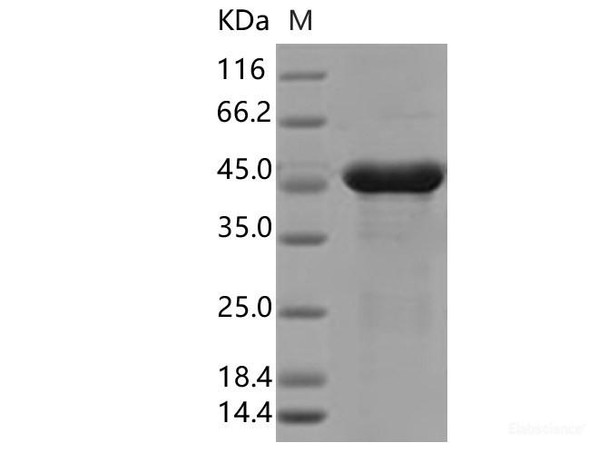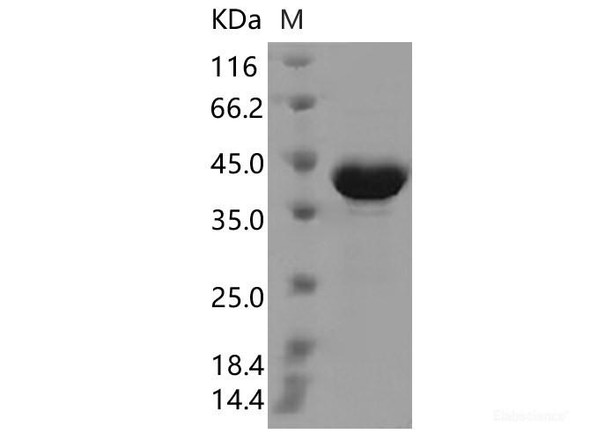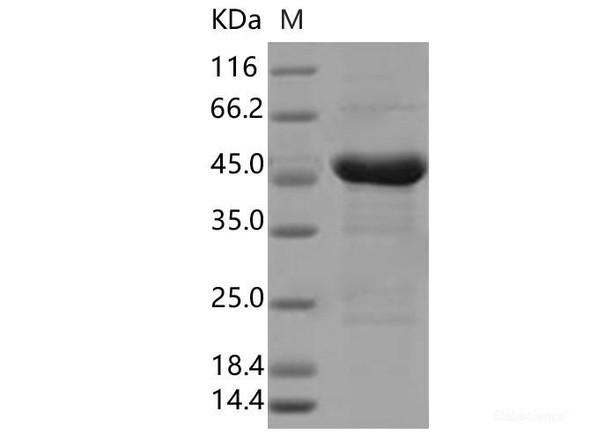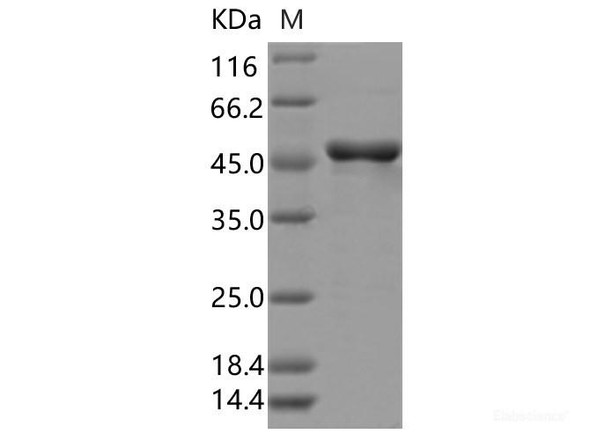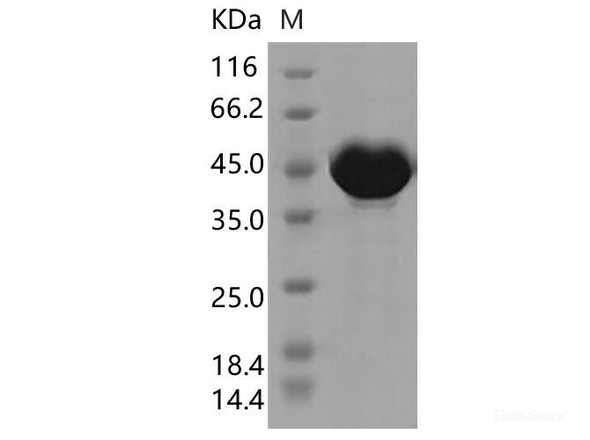| Sequence: | Met1-Ala419(P13L) |
| Accession: | YP_009724397.2 |
| Storage: | Generally, lyophilized proteins are stable for up to 12 months when stored at -20 to -80°C. Reconstituted protein solution can be stored at 4-8°C for 2-7 days. Aliquots of reconstituted samples are stable at < -20°C for 3 months. |
| Shipping: | This product is provided as lyophilized powder which is shipped with ice packs. |
| Formulation: | Lyophilized from sterile 50 mM PB, 500 mM NaCl, pH 7.0. Normally 5 % - 8 % trehalose, mannitol and 0.01% Tween80 are added as protectants before lyophilization. Please refer to the specific buffer information in the printed manual. |
| Reconstitution: | Please refer to the printed manual for detailed information. |
| Background: | Coronaviruses are enveloped viruses with a positive-sense RNA genome and with a nucleocapsid of helical symmetry. Coronavirus nucleoproteins localize to the cytoplasm and the nucleolus, a subnuclear structure, in both virus-infected primary cells and in cells transfected with plasmids that express N protein. The coronavirus N protein is required for coronavirus RNA synthesis and has RNA chaperone activity that may be involved in template switch. Nucleocapsid protein is the most abundant protein of coronavirus. During virion assembly, N protein binds to viral RNA and leads to the formation of the helical nucleocapsid. Nucleocapsid protein is a highly immunogenic phosphoprotein also implicated in viral genome replication and in modulating cell signaling pathways. Because of the conservation of the N protein sequence and its strong immunogenicity, the N protein of coronavirus is chosen as a diagnostic tool. |

